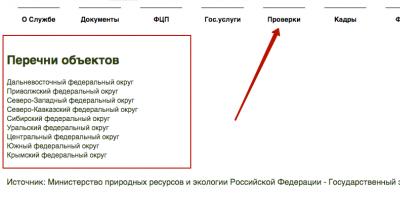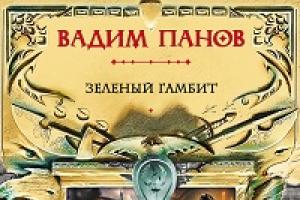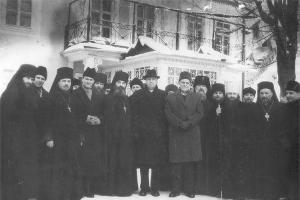All people are imperfect and are subject to certain sins from time to time. Of course, you need to try to improve yourself and improve, but in order to know how to eliminate your own shortcomings, you should first familiarize yourself with the list of the main vices of a person, which is given in this article.
What is vice?
Vice is a moral and spiritual defect, the opposite of good. This is everything that is contrary to kindness and truth; vices include any kind of moral perversions, distortions, inclinations for bad things, a bad life.
Vice is always a violation of the norm. It’s sad to realize, but in nature there are no ideal people at all; everyone has some sins.
Although the name “deadly sins” inspires some horror, in reality they are nothing more than information that a person must realize, accept and begin to process. If you are not trying to run away from the truth and admit that you have some kind of sin, then you are ready to start dealing with it.
If you have a sincere desire to start fighting your vices and improve yourself, be sure to read on.
List of basic human vices
In total, there are seven generally established human sins - laziness, gluttony, pride, lust, greed, malice and envy. Of course, this list can be enumerated ad infinitum, but these seven vices were singled out separately, since they are the ones that contribute to the emergence of other sins.
All people encounter the described sins from time to time throughout their lives. It is also important to remember that sins differ from each other in their semantic characteristics.
For example, for some of them a person is guilty before his personality, his religion, and for other shortcomings - before the people around him.
According to a common point of view, pride is the most terrible vice. This is explained by the fact that a proud person challenges the Creator himself.
- Laziness(can also manifest itself in the form of apathy, depression, reluctance to do something). Laziness is a lack of hard work or its complete absence. Lazy people cannot be useful to their society.
But sometimes it is vital for each of us to be lazy in order to preserve our energy and improve our future functioning. The main thing is not to overdo it.
- Gluttony(also known as gluttony). This is a pathological passion for delicious food that a person consumes in excessive quantities.
It should be noted that alcoholism is also a type of gluttony. Lovers of delicious food often suffer from excessive food consumption.
- Anger(also manifested in the form of rage, anger, aggression, desire for revenge). Anger is a negative emotion that is aimed at a feeling of injustice. At the same time, a person is overcome by a strong desire to eliminate this injustice.
- Greed(known under the guise of greed and stinginess). Greed is the desire to own as much material wealth as possible, when a person simply loses his sense of proportion.
- Envy(this vice also manifests itself in the form of jealousy). Envy is a person’s desire to possess the same things that more successful individuals possess. A person overcome by envy can commit various terrible acts.
- Pride(also known as pride with arrogance). It manifests itself in the form of egoism (egocentrism), excessive pride, arrogance. If a person is overcome by pride, he brags about himself in front of other people and is firmly convinced that his opinion is the most correct.
- Lust(manifests in the form of debauchery, fornication, voluptuousness). Lust acts as a rough sexual desire, forbidden passion, secret desires. In general, this vice includes any type of desire due to which a person faces some inconvenience or suffering.

Sociologists conducted an interesting study, which resulted in a “hit parade” of deadly sins. Anger and pride took first place in him, and laziness and greed came in last.
How to deal with your vices
It’s not enough just to know a list of a person’s main vices. If you really want to start improving yourself, then get rid of your own shortcomings. We'll tell you how to do this further.
- Pride. To cope with pride, you should feel a sense of respect and love for other people, regardless of what position in society and status they have. You must try to understand that those around you, just like you, are part of a single Universe in which everyone should live in harmonious relationships with the world.
- Greed. How can you cope with this vice? You need to start treating things differently, to understand for yourself that real life values are never material. AND expensive car or an apartment - these are all means to help you lead a normal life, and not objects that should be worshiped. True values are always hidden deep within ourselves. They lie in our faith, our ability to change ourselves and our lives for the better.
- Envy. If you want to eradicate the feeling of envy in yourself, then you must eliminate the feeling of contempt for those people who have achieved more success in life. Moreover, they really have no idea about your feelings and cannot in any way influence your success.
Learn to live without looking at the happiness and success of others, concentrate only on yourself and you will certainly be able to succeed in the business in which you dream of doing it.
- Lust. To eliminate sin, lust must be prevented intimacy in cases where you do not have any feelings for your partner. Sex is a manifestation of love, and if there is no love, then it is impossible to talk about full-fledged intimacy.
- Anger. To stop getting angry often, analyze the situation or people from whom you feel the energy of danger, who instill in you a feeling of fear. Most likely, in reality they are not at all as dangerous as you think about them. Start working through your fears, realize their true essence - this will help you discover the root cause, and therefore quickly eliminate them in principle.
- Laziness. Not everyone is aware that laziness can be not only harmful, but also useful. Just give yourself some physical and mental rest from everyone and everything. Be alone with yourself, letting go of all thoughts and not taking any actions. After being lazy for a while, you will understand that such a state only causes you boredom and you will return to normal tone.

You need to find motivation for action - promise yourself to go where you have long wanted, to pamper yourself happy shopping, see friends. After all, getting out of a state of laziness and your efforts should certainly receive a well-deserved reward.
Now you know the basic human vices that make us worse and prevent us from developing and improving. Try to protect yourself from negative emotions, eliminate negativity from your life as much as possible, be open to the world and let love into your heart - then none of the seven vices will be able to cling to you.
Finally, be sure to watch this interesting thematic video material:
1 slide
Denis Ivanovich Fonvizin Magic land! There, in the old days, the brave ruler of Satire, Fonvizin, the friend of freedom, shone... A.S. Pushkin. “Eugene Onegin” (1745 -1792) Teacher of Russian language and literature MBOU “Secondary School No. 30 with UIPOO” Physical Culture» Khisamutdinova F.R. ...

2 slide

3 slide

4 slide
“The action produced in me by the theater is almost impossible to describe: the comedy I saw, quite stupid, I considered the work of the greatest mind, and the actors - great people, whose acquaintance, I thought, would constitute my well-being.”

5 slide
1759 – 1762 – gymnasium at Moscow University “My sharp words, recalls Fonvizin, rushed around Moscow; and as they were caustic for many, the offended declared me an evil and dangerous boy; yet those whom my sharp words only amused, glorified me amiable and pleasant in company."

6 slide
Satire and journalism were his weapons. Courageous protest against the injustices of autocracy and angry accusations against feudal abuses were heard in his works. This was the historical merit of D. I. Fonvizin

7 slide

8 slide

Slide 9
Features of drama as a type of literature The basis of drama is the action, the speech of the hero is the main means of creating an image, the absence of a detailed narrative-descriptive image important role scenery and artistic details (interior, costume, etc.) the author's position is helped to understand the stage directions (the author's indication of the actions of the characters, their gestures, facial expressions, intonation, pauses, etc.)

10 slide
Basic rules of classic comedy Image Everyday life, human vices Heroes are people of low class, with base interests worthy of ridicule; each of them is a carrier of one trait, one vice; a clear division into positive and negative characters Speaking surnames One idea Unity of action (comedy should be based on one conflict) Unity of place and time (action takes place in one place during the day) Heroic and tragic is not allowed (comedy should execute vices with laughter) Setting on colloquial A happy ending

11 slide
Theory of Literature Fonvizin's comedy "The Minor" is a satire. Satire is a type of comic, an angry denunciation of social phenomena with laughter.

12 slide
Which of the rules and techniques of classical comedy were retained by D.I. Fonvizin, which ones did he violate? Let's think about a deviation from the unity of action (in the comedy "Minor" there are two storylines) the negative heroes are interesting and ambiguous when creating the characters of the heroes, speech characteristics are used an unhappy end unity of place (Prostakov village) unity of time (one day) one idea (raising a worthy citizen) division of heroes on negative and positive “speaking” surnames, emphasizing the dominant character trait that the character bears
Lesson 4 Literature of the 18th century ( general review)
Classicism in Russian and world art
The purpose of the lesson: general overview “Development of Russian literature in the 18th century”; introduction of the concept of "classicism".
Vocabulary work: statehood, “secular” culture, classicism, citizenship.
During the classes
I. Recording epigraphs for the lesson, talking about them
There was that troubled time
When Russia is young,
Straining strength in struggles,
She dated the genius of Peter.
A. S. Pushkin
Our literature suddenly appeared in the 13th century.
A. S. Pushkin
Questions:
Why is Russia “young”?
How did the formation of Russian statehood proceed in the 18th century?
How is this process related to the activities of Peter I?
How do you understand the meaning of the second epigraph? What is inversion used for, what words are logically highlighted?
Pushkin's assessment of the literature of the 18th century was heard.
To make it clear to students, you can invite them to draw a “time ray.”
II. Drawing up a reference diagram
On the time ray we will place what students already know quite well, but at the same time we will outline the question for subsequent lessons: how was it prepared, how did the unprecedented flowering of Russian literature become possible in the 18th century.
III. Work according to the table (photocopies are distributed to each table). Learning to take notes using a textbook and teacher lectures
A comment. Russian literature of the 18th century. adopted the experience of European literature (the influence of classicism), but also preserved the best traditions of literature Ancient Rus', first of all, citizenship, interest in the human personality, satirical orientation.
| Russian literature of the 18th century. |
||
| Period | Character traits | Names |
| I. Literature of Peter's time | Transitional nature, intensive process of “secularization,” formation of secular literature | Feofan Prokopovich |
| The formation of new literature |
||
| II. 1730-1750 | Formation of classicism. The rise of the ode genre | A. D. Kantemir V. K. Trediakovsky M. V. Lomonosov A. P. Sumarokov |
| III. 1760 - trans. floor. 1770s | Further evolution of classicism. The rise of satire. The emergence of prerequisites for the emergence of sentimentalism | V. I. Maikov M. D. Chulkov N. I. Novikov V. V. Tuzov M. M. Kheraskov |
| IV. Last quarter century | The beginning of the crisis of classicism, the formation of sentimentalism, the strengthening of realistic traditions | D. I. Fonvizin G. R. Derzhavin A. N. Radishchev I. A. Krylov N. M. Karamzin I. I. Dmitriev |
IV. Definition of the concept of "classicism". Classicism in Russia
The origins of world classicism are in France in the 17th century, in the views of the outstanding French playwrights Corneille and Moliere and the literary theorist N. Boileau. Here is a fragment from Boileau’s treatise “The Poetic Art”:
Whatever the plot, high or funny,
The meaning must always be in agreement with the smooth rhyme.
It seems in vain that she is at war with him:
After all, rhyme is only a slave: it must be obedient.
If you search carefully, then soon a sharp mind
Get used to finding it easily and at once;
The sane mind submits to the yoke,
She gives him a valuable frame.
The heroes of classic works, as a rule, had a dominant character trait and were divided exclusively into positive and negative, especially in works of dramatic genres.
Here is another statement from Boileau:
Skilfully preserve for your hero
Character traits among any events.
But strict logic is expected of you in the theater;
It is governed by the law, demanding and tough.
Are you introducing a new face to the stage?
Let your hero be carefully thought out,
Let him always remain himself.
Main property
- appeal to the images and forms of ancient art as classical and ideal models; normative poetics.
At the core of aesthetics - the principle of rationalism and “imitation of nature.”
Characteristic features of classicism (written in notebook):
Cult of the mind
A work of art is organized as an artificial, logically constructed whole;
Strict plot and compositional organization, schematism;
Life phenomena are transformed in such a way as to reveal and capture their generic, essential features and properties;
Human characters are depicted in a straightforward manner; positive and negative heroes are contrasted;
Idealization of heroes, utopianism, absolutization of ideas;
The objectivity of the narrative is emphasized;
Actively addressing social and civil issues.
The main slogan of classicism of the 17th-18th centuries. - imitation of nature, where everything, according to classicists, is clear, distinct, and subject to rules. A work of art should be like an algebraic formula. Thus, the basis of the aesthetics of classicism is rationalism (from lat. ratio- intelligence).
The heroes are clearly divided into positive And negative , the author's assessment is clearly expressed. Each hero is a bearer of some trait (virtue or vice), which is reflected in speaking surnames (Skotinin, Prostakov, Milon, Pravdin, Starodum at Fonvizin).
Classic plays are characterized by “ role system ».
Role - a type of character that moves from play to play. For example, the role of a classic comedy is ideal heroine, hero lover, second lover (Jonah); reasoner - a hero who takes almost no part in the intrigue, but expresses the author’s assessment of what is happening; soubrette - a cheerful maid who, on the contrary, actively participates in the intrigue.
The plot is usually based on love triangle
:
heroine - hero-lover - second lover.
At the end of a classic comedy, vice is always punished and virtue triumphs.
Principle three unities
due to the requirement to imitate nature:
But we must not forget, poets, about reason:
One event per day
In one place let it flow on stage
Only in this case will it captivate us 1
- unity of time: the action develops no more than a day;
- unity of action: one storyline, the number of characters is limited (5-10), all characters are necessarily connected by the plot, i.e. must not be side effects, characters.
Requirements for a classic composition: a play, as a rule, has 4 acts: in the third there is a climax, in the fourth there is a denouement. Features of the exhibition: the play is opened by minor characters who introduce the viewer to the main characters and tell the backstory. The action is slowed down by long monologues from the main characters.
A clear division into high and low genres.
Strict hierarchy of genres 2

They reflected social life. They described everyday life.
life, history; heroes acted, life ordinary people. Allowed
generals, monarchs. Also the use of prose or heterogeneous
mythological and biblical verses, everyday details, conversational
lei stories. The time of the classic style of speech.
ma - the time of the enlightened abso- French classicists: drama-
Lutism: the idea of turgi Corneille, Racine, Moliere was very important,
serving the state, fulfilling the fabulist La Fontaine, author
civic duty. treatise "Poetic Art"
Usually written in Alexandrian Boileau, Voltaire.
verse, they were not allowed to use Comedy, satire, fable.
the formation of colloquial expressions, and
specific names are often replaced -
were generic (for example, instead of
wolf - beast).
Tragedy, epic, ode.
Next, you can invite students to get acquainted with the article in the textbook “Russian Literature of the 18th Century” (according to G. Makogonenko) and supplement the material in the summary, mainly with information about the activities of individual “writers”.
V. Working with the textbook article “Classicism”
The definition of classicism and the differences between Russian and Western European classicism are written in the notebook.
The teacher needs to emphasize that classicism as a literary movement arose in Western European countries and is correlated with the process of creating unified national states. The idea of civic service becomes pervasive. The need to streamline life in such a state leads to normalization in art, following certain rules and imitation of recognized (mostly ancient) models. Art consciously set itself the task of social and moral education of fellow citizens.
Homework
1. In a written reflection, try to determine the role of literature of the 18th century. in the history of Russian literature in general.
Lessons 5-6. A play from the era of classicism.
J.-B. Moliere "The Tradesman among the Nobility"
Lesson objectives: consider the signs of classicism in drama; get acquainted with the biography and essay on the work of J.-B. Moliere.
Vocabulary work: reasoner.
During the classes
I. Working with the textbook
Reading the article “French classicism” with additions and comments from the teacher.
As a result of the work, a plan should remain in the students’ notebooks.
1. Strict hierarchy of genres in classicism.
2. Comedy in the genre system:
a) depiction of everyday life, human vices;
b) conventional plot, comedy scheme;
c) the task of “making people laugh and using laughter”;
d) setting to spoken language;
e) happy ending;
e) 5 actions.
3. Rules of three unities in a dramatic work:
a) unity of place;
b) unity of action;
c) unity of time.
4. Heroes of classicist plays:
a) “the invariability of the hero (lack of internal development);
b) hero - the embodiment of one trait (speaking names);
c) dividing heroes into strictly positive and strictly negative;
d) hero-reasoner.
Vocabulary work.
Reasoner
- a character in literature of the 17th-18th centuries. (a feature of comedies), who does not take an active part in the development of the action and is called upon to exhort or denounce other characters, expressing moralizing judgments from the author’s position.
II. Moliere is a representative of French classicism of the 18th century.
1. You can start by reading ch. 33 novels by Mikhail Bulgakov “The Life of Monsieur de Moliere” (the scene of Moliere’s death and the story of his burial).
2. The teacher's word.
In the biography of Moliere, written by Mikhail Bulgakov, there is a chapter “Bru-ha-ga”, dedicated to the first performance of Moliere’s theater at court. This happened in the halls of the Louvre on October 24, 1658. The evening opened with Corneille's tragedy "Nycomede". In the hall are the king, courtiers, actors of the Burgundy Hotel, recognized masters of the tragic genre. As the performance progresses, the audience becomes bored, and the king's brother, young Philippe d'Orléans, shrinks into his chair. It was he who secured the right for a provincial troupe to play in the Louvre. So what is failure? It seems to have already been accomplished when, after Nicomedes, Moliere appears on stage and offers a comedy of his own composition - “The Doctor in Love”: the province laughed at it. The king nodded.
The leading role, as in the just failed “Nycomede,” was played by the director of the theater himself, Molière. He ran onto the stage, and “the audience started smiling. After the first remark, they began to laugh. And after a few minutes, the laughter turned into roar. And you could see how the arrogant man in the chair [the king] fell back and began to sob and wipe away his tears. Suddenly, completely unexpectedly for himself, Philippe d'Orléans laughed shrilly nearby. The loving doctor’s eyes suddenly brightened. He realized that he was hearing... the famous, indescribable collapse in the hall, which spoke of the complete success of the comedy, which in Molière’s troupe was called “bru-ha-ga.”
This is how the capital learned about the new troupe and its director, an unimportant performer of tragic roles, but a magnificent farce and writer of comedies. The king legalized the existence of the new theater by assigning it the Petit Bourbon hall. According to the unofficial title of the king's brother, the theater was called Monsieur's troupe.
III. Working with the textbook. Reading an article about Moliere
Opinion exchange. Can you follow M.A. Bulgakov and say: “I love Moliere very much”? What comedies have you read? What is your reaction to Moliere?
Homework
1. Reading the comedy “A Bourgeois in the Nobility.”
2. Individual task-message: “From the history of the creation of comedy.”
Information for teachers
Real name Moliere - Jean-Baptiste Poquelin(1621-1673). He is the son and grandson of a royal upholsterer. An enviable position, which he refused in favor of his brother, choosing another field - theater - and adopting a stage name that became world famous.
Moliere received a good education at the College of Clermont (now the Lyceum of Louis the Great), completing his studies in 1639. He studied law for the next three years. In 1641, at the house of his friend, Moliere listened to lectures by the philosopher Pierre Gassendi (1592-1655). If in the tragedy of classicism with the intellectual harmony of its conflict they see a parallel to the rationalism of Descartes, then isn’t it logical that Gassendi, a staunch opponent of the theory of innate ideas, preaches to the comedian? The world, according to Gassendi, is not created by the Divine mind, but is born by self-creating matter for the joy and pleasure of man. How much this way of thinking fascinated Moliere can be judged by the fact that his first literary creation was a translation of the ancient Roman poem by Lucretius “On the Nature of Things.”
In 1643, Jean-Baptiste Poquelin made the final choice. On January 1 next the Brilliant Theater opens, and among its creators is a new theatrical name - Moliere. Among his companions are the Bejart family, including Madeleine Bejart, Moliere's stage partner and friend.
The French Renaissance was not marked by the flowering of theatrical art. Attempts were made to create a new drama, the first professional troupes performed, but the efforts of poets and actors remained scattered. People still preferred medieval farces. The power of the past was also noticeably manifested in the fact that in Paris the corporation of artisans, the Brotherhood of the Passion, owned the monopoly obtained for the production of mysteries back in 1402, as well as the only theater building. Erected in 1548 on the site of the palace of the Dukes of Burgundy, it was called the Burgundy Hotel. Both French farce performers and visiting Italian troupes were forced to rent it from the Brotherhood. Here, in 1625, a troupe led by the talented actor Mondori began to play. In 1630, she received the right to be called “actors in the permanent service of the king” and often performed in the royal palace. In 1634, Mondori settled in the Marais hall, intended for playing ball. The name of the hall (translated as “swamp”, after the name of the area inhabited by the poor) becomes the name of the second Parisian theater.
Moliere is trying to create another theater in the capital. The first Parisian period in his theatrical career did not last long - just over a year - and ended ingloriously. In the fall of 1645, the brilliant theater went bankrupt. Moliere spent several days in a debtor's prison, and then with the rest of his at that time not very professional troupe, he went to the provinces on a tour that lasted thirteen years. He wandered from city to city, enduring the hardships of the journey and the miserable life of an actor. The profession of an actor at that time was not considered noble. Moliere had to change the status and meaning of his craft.
What could they play then? Old farces were remade. A new experience in France was the acquaintance with the Italian mask theater, comedy del arte. Like the French farce, it inherited the old traditions of the popular cultural platform, but, formed only in the 16th century, it represented a higher stage of its development. In terms of stage performance, this comedy involved the creation of an acting ensemble consisting of four masks. The most famous - “northern” - four were Pantalone (a merchant, stingy), the Doctor and two simpletons - Zanni Brighella (initially a cunning, resourceful, evil peasant) and Harlequin (initially stupid, later a rogue).
This experience gave Moliere a lot. You could say that he made him become a playwright, since commedia dell'arte is improvisational theater. There is only a general, as they would say now, script plan, and the text of the role is created by the actor himself. Moliere began to sketch out roles, vary plots, and adapt Italian masks to French life. In some of the names of Molière’s characters, even much later, their pedigree is discernible: for example, the hero of several comedies, Sganarelle, comes from Zanarello (Zanni). From there is the Doctor in Love, who brought the first Parisian success.
The success confirmed the skill of the troupe, but no less the skill of its comedian, whose creation was replaced by recognition in the masks of types real life. For Moliere this was just one of the first sketches. It was now that he began to write in detail and detail from life.
(lesson 2)
Lesson objectives: study the history of the creation of the comedy “A Bourgeois in the Nobility”; reveal intrigue in the play; meaning and images of comedy.
Vocabulary work: intrigue.
J.-B. Moliere is a representative of French classicism of the 17th century.
Goals: consider the signs of classicism in drama; introduce the biography and work of Moliere.
During the classes
I. Learning new material.
1.Learning to take notes teacher's lectures.
Teacher's story about French classicism.
The heyday of classicism is associated with the period of establishment of the absolute monarchy in France. By the middle of the 17th century. royal power became a historically progressive force, opposing the willfulness of large feudal lords and promoting the development of the economic, social and spiritual life of the country. Under the patronage of the king, the French bourgeoisie grew rich. It was the king who managed to soften the fierce religious hostility within the country. The king's personality was perceived as the embodiment of rational will and enjoyed unquestioned authority. This era was called enlightened absolutism.
Historically, the necessary measures of royal power did not include concern for the welfare of the broad masses.
Louis XIV, or, as he was called, the “Sun King,” maintained his court with unprecedented luxury. The best artists, writers, musicians and performers were called to the court. The king built himself a new residence near Paris - Versailles. Its architects created a style that was reminiscent of ancient buildings in its strict artlessness and majesty. The style was based on the principle of gravity towards the center, symbolizing central power. The principle of strict regulation, which was imposed at the royal court, extended to the culture of the era. This is how the art of classicism arose, in line with which great works of architecture, sculpture and literature, especially drama, were created.
Classicism in France produced great writers - masters of the tragic genre Corneille and Racine, the fabulist La Fontaine, and the comedy writer Molière.
The method of depicting a person among the playwrights of French classicism differs significantly from what realists of the 19th century later began to use. Unlike realism of the 19th century, in the works of which characters are associated with circumstances and are most often determined by these circumstances, classical tragedy puts forward character in itself, circumstances here play a subordinate role.
Classicism tried to emphasize the universal human meaning of the conflicts depicted. On the stage of the French tragic theater of the 17th century. the heroes act as participants in acute conflicts, the plot is built on the collision of opposing feelings - duty and passion.
The tragic poet’s focus on depicting human character and the moral principles that the hero follows largely determines the structure of the tragedy and the arrangement of characters in it.
Here the principle of “three unities”, traditional for the dramaturgy of classicism: place, time, action, is also explained.
The art of Moliere, a playwright and actor, grew up in the artistic atmosphere of mature classicism. By this time, Corneille had already completed his career; Racine was a contemporary of Moliere.
Moliere's classicism is associated with an in-depth development of characters and an interest in the human personality in its complex relationships with other people.
2.Recording the main points on the topic “French classicism”:
1) Strict hierarchy of genres.
2) Comedy in the genre system:
a) depiction of everyday life, human vices;
b) conventional plot, comedy scheme;
c) the task is “to make people laugh and use laughter” (that is, to heal);
d) setting to spoken language;
e) happy ending;
e) 5 actions.
3) Rule of three unities:
a) unity of place;
b) unity of action;
c) unity of time.
4) Heroes of classicism:
a) the “constancy” of the hero (lack of internal development);
b) hero - the embodiment of one trait (speaking names);
c) dividing heroes into strictly positive and strictly negative;
d) a hero-reasoner (expressing moralizing judgments from the author’s position).
3. Teacher's story.
In the artistic biography of Moliere, written by M. Bulgakov, there is a chapter “Bru-ga-ga”, dedicated to the first performance of Moliere’s theater at court. This happened in one of the halls of the Louvre on October 24, 1658. The evening opened with Corneille's tragedy "Nycomède". In the hall are the king, courtiers, actors of the Burgundy Hotel, recognized masters of the tragic genre. As the performance progresses, the audience becomes bored, and the king’s brother, young Philippe d’Orléans, shrank in his chair—it was he who secured the right for the provincial troupe to play in the Louvre. So what is failure? It seems to have already been accomplished when, after “Nycomede,” Moliere appears on stage and offers to play before the audience a comedy of his own composition, “The Doctor in Love” - they say, the province laughed at it. The king nods indulgently.
The leading role, as in the just failed “Nycomede,” was played by the director of the theater himself, Molière. He ran onto the stage and the audience began to smile. After the first remark they began to laugh. And after a few minutes the laughter turned into roar. And you could see how the arrogant man (the king) fell back in his chair and began to sob and wipe away his tears. Suddenly, unexpectedly for himself, Philip laughed shrilly next to him. Moliere's face suddenly brightened. He realized that he was hearing “... the famous, indescribable collapse in the hall, which speaks of the complete success of the comedy, which in Molière’s troupe was called “bru-ha-ha” ....”
This is how the capital learned about the new troupe and its director, an unimportant performer of tragic roles, but a magnificent farceur and writer of comedies. The king legalized the existence of the new theater by assigning it the Petit Bourbon hall. According to the unofficial title of the king's brother, the theater was called Monsieur's troupe.
4.Student's report about J.-B. Moliere.
Jean Baptiste Poquelin, who went down in literature under the name Molière, was born in 1622 into the family of a furniture upholsterer, who eventually bought the patent of “the king’s personal upholsterer.” The future writer was educated at one of the privileged educational institutions - Clermont College (now the Ludwig the Great Lyceum). As was customary then, he mastered Latin perfectly (students, even during breaks, were required to speak only Latin), and knew the ancient classics well. Biographers claim that the range of his knowledge was wider than was provided for in the program. After graduating from college, Jean Baptiste receives a law degree; 2 years later, in 1643, he renounces the right to the title of “personal upholsterer of the king,” which he could inherit from his father, and becomes an actor. With the assistance of several friends, he opens the so-called Brilliant Theater in Paris, where he takes the stage name Moliere for the first time. However, this enterprise fails, and the bankrupt troupe begins to wander around the cities and rich estates of France. It was during this period, which lasted for 13 years, that Moliere acquired life and stage experience and began to write plays himself.
Moliere's troupe performed, of course, not only before provincial nobles, but also before commoners. Acquaintance with people from the people during many years of wandering around the country contributed, in particular, to the creation of images of energetic, dexterous and intelligent servants and maids in his comedies.
It meant a lot to Moliere to become acquainted with folk farce - an eccentric comedy on everyday topics, common in the French fair theater. Moliere used many farce techniques when creating his works. From the Renaissance, Moliere has his cheerfulness, faith in man, his depiction of the struggle against inert forces that prevent the hero from achieving happiness.
The sudden death of the playwright in 1673 occurred, one might say, on the stage. While playing the main role in his last comedy, The Imaginary Invalid, Moliere felt truly ill and died shortly after the performance. The Archbishop of Paris, who belonged to the camp of enemies of the great comedian, prohibited funerals in the city cemetery under the pretext that the “comedian” died without repentance. This absurd situation, when relatives did not know what to do with the body of the deceased Molière, was reproduced in detail in M. Bulgakov’s biographical story “The Life of Monsieur de Molière.”
5.Reading by teacher Ch. 33 novel by M. Bulgakov“The Life of Monsieur de Moliere” (the scene of Moliere’s death and the story of his burial).
II. Summing up the lesson.
Homework:
2) individual task: prepare a message “From the history of the creation of the comedy “The Bourgeois in the Nobility”.”
Download material
See the downloadable file for the full text of the material.
The page contains only a fragment of the material.








